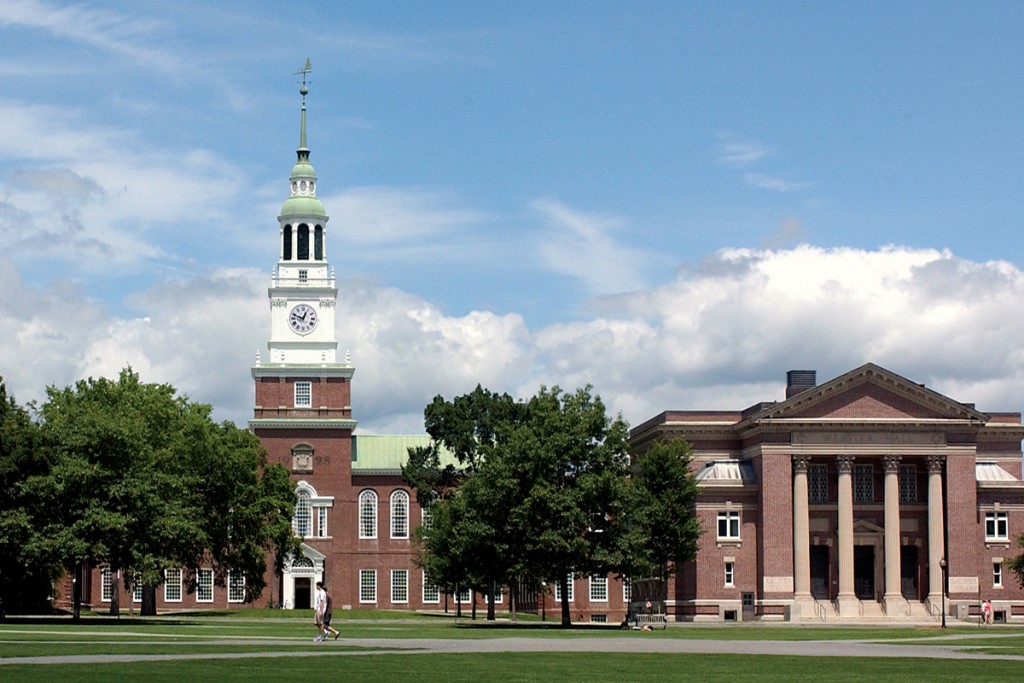If you’re looking for a sign that student life has hit a rough patch, the opinion pages of The Dartmouth are pretty good bellwether. Over the past few weeks, The D’s usual mix of musings on culture and politics has turned into a more straightforward rap about dissatisfaction with the College. Of course the troubled state of Greek life has been at the heart of this shift, bearing snappy titles like “A Modern Greek Tragedy” and “Pillaging the Greeks.” But other pieces have brought up issues with the housing system and have called attention to the administration’s disregard of students’ opinions in general. Criticizing Parkhurst for stonewalling the student body is The Dartmouth Review’s usual beat, but hopefully now that we’ve been joined by some consonant voices, people who doubted the problem will be more willing to tune in.
Getting the student body unified around a critical message is a good first step toward sparking change. But all the op-eds in the world probably wouldn’t be enough to move anyone inside the administration unless we find a way to pair our words with some formal proposals. This is presumably what the execs of the Student Assembly (SA) had in mind when they proposed the creation of a student Bill of Rights, which they announced to campus in an email on February 10. The details are barebones for now, but the SA will host a town hall-style meeting with students on February 25 to outline their vision in more detail and take suggestions for what student protections ought to be included in the document.
The email did outline the three general areas that the Bill of Rights will attempt to address—the College’s academic code of conduct, its judicial affairs process, and rules for our Safety and Security officers. Observers should quickly recognize the recent incidents in each of these areas that have given students cause for concern. The Religion 65 “Clickergate” incident in the fall of 2015 showed that the College’s regulations are often vague. The derecognitions of both Alpha Delta and Sigma Alpha Epsilon demonstrated how unpredictable and one-sided the judicial process can be. And students have had a whole host encounters with unruly, overzealous security officers, as The Review chronicled in “Am I Being Detained?” (November 6, 2014). If adopted, a student Bill of Rights could help clarify the limits of the College’s action against students in each of these areas.
But of course persuading Parkhurst to limit its own actions is an almost inconceivably ambitious goal. In an interview with The D, SA President Frank Cunningham pointed out that almost all student “bills of rights” at other colleges are actually just summaries of the colleges’ codes of conduct, rather than student-made rules to reign in administrator’s actions. President Hanlon will likely balk at the idea of ceding any freedom of operation to the students, as well as at the symbolic implication of admitting to having overreached.
Nonetheless, if the Bill of Rights is drafted well, it would represent an important advance in student-administrator relations. Over the past few years, most of the direct requests that Parkhurst has received from students have come from a small circle of activists who pushed for extreme reforms surrounding minority issues, most notably the Freedom Budget of spring 2014. Although many administrators like Vice Provost Ameer are eager to support this type of activism, the clear unreasonableness of the activists’ proposals prevents them from fully engaging. The coming bill of students’ rights has the chance to be different. Although the SA doesn’t have a stellar track record of worthwhile reforms, the College has to at least recognize its role as an official representative of students, rather than a small group with very specific interests. What’s more, if the result of the town hall is a set of practical limits based on specific incidents, then the document will at least offer administrators a starting point to consider potential reforms, rather than a mere expression of students’ pent up emotions.
It’s difficult to imagine what good excuse administrators could give for choosing not to pay heed to the proposals that come out of this process. Every panel and working group they create is formed with the pretense of bringing students into the policy process, but in truth, the groups formed in the wake of Moving Dartmouth Forward operated under Parkhurst’s rules and were guided by administrators’ visions throughout the course of their work. If President Hanlon and co. actually view students as worthy co-designers of our own campus experience, then they should be open to considering actual student-led proposals from time to time.
Students should maintain hope that the town hall meeting and resulting document are fruitful, and should get involved if possible. Whether or not our administrators are willing to play ball, presenting a well–wrought proposal for protecting students’ interests will at least force Parkhurst to either think seriously about how to cooperate, or expose themselves as uninterested in heeding the student body’s most urgent concerns.


Be the first to comment on "For the Students, By the Students"